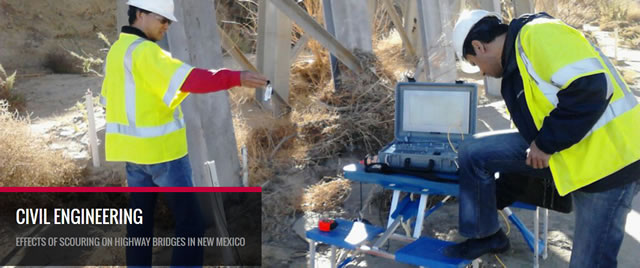
Civil Engineering ETDs
Publication Date
Summer 7-27-2017
Abstract
Factors such as increasing population, urbanization, and climate change have made the management of water resources a challenge for many municipalities. Water reuse, especially direct potable reuse (DPR) of treated wastewater, is increasingly seen as a potential source of water for communities facing water shortages. Due to improvements in analytical capabilities as well as concerns regarding toxicology of contaminants of emerging concern (CECs), the need for investigating the removal of CECs has become crucial for further DPR considerations. Reverse osmosis (RO) has been demonstrated to remove many CECs. Many studies, however, have investigated the removal of well-known CECs, often with high molecular weights and complex structures. This bench scale study investigated the rejection of low molecular weight compounds by RO membranes to correlate removal to molecular characteristics and physical properties. The data collected from experiments is also used to create a model to predict the CECs rejection between membranes used in experiments, utilizing boron as a reference between membrane products.
Keywords
reverse osmosis
Document Type
Thesis
Degree Name
Civil Engineering
Level of Degree
Masters
Department Name
Civil Engineering
First Committee Member (Chair)
Dr. Kerry Howe
Second Committee Member
Dr. Bruce Thomson
Third Committee Member
Dr. Daisuke Minakata
Fourth Committee Member
Dr. Aleksey N. Pisarenko
Recommended Citation
Breitner, Lauren N.. "REJECTION OF LOW MOLECULAR WEIGHT NEUTRAL ORGANICS BY REVERSE OSMOSIS MEMBRANES FOR POTABLE REUSE." (2017). https://digitalrepository.unm.edu/ce_etds/190
